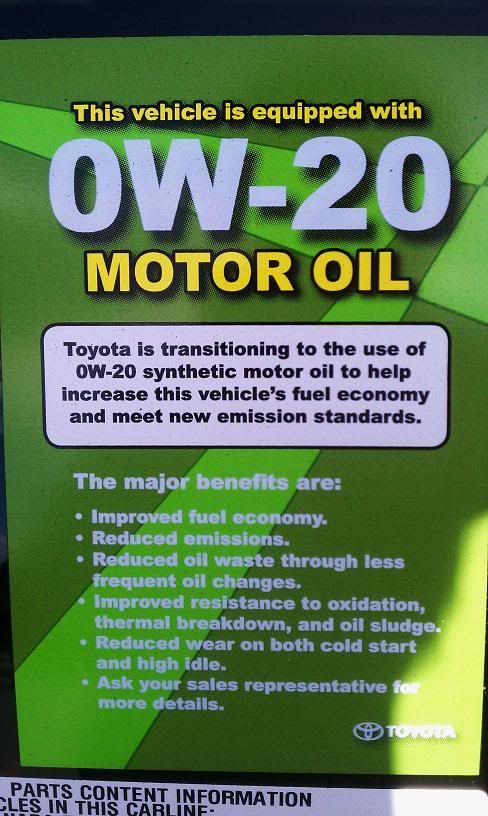Originally Posted By: rcy
Originally Posted By: Gokhan
Originally Posted By: JOD
What are you talking about? The Mg levels in Toyota (XOM), Honda (Idemitsu), Conoco Phillips, Redline, Service Pro...ALL of those oils contain trace amounts of Mg, from 4-12ppm (and these Mg levels are similar to what is found in 5W20 oils?). Avoiding an oil based on 12 of an additive seems beyond ridiculous. The only high Mg formulations I've seen in a 0W20 are from XOM.
Be careful there. Toyota started specifying 10,000-mile OCIs only recently and chances are that their new 0W-20 formulations have plenty of Mg. When more car manufactures specify 10,000-mile OCIs, you will see that the Mg levels will increase. It's all about TBN retention. Read the paper above in order to understand it.
For example Mobil 1 (except 0W-20, which is a 10,000-mile-OCI oil) SN formulations don't have high quantities of Mg but Mobil 1 EP SN formulations do. Again, it's all about TBN retention. It's the same thing with Castrol Edge, which is astronomical in Mg.
VOA done in 2010 on the new silver bottle (Canadian) formula 0w20 from Toyota. This new silver bottle was after Toyota started spec'ing 10000 mile OCI. For comparison purposes, the numbers are also listed from 2009 when I had a VOA done on the original black bottle Toyota 0w20. It was 12ppm then.
http://www.bobistheoilguy.com/forums/ubbthreads.php?ubb=showflat&Number=1988891&page=1
Magnesium 11ppm (2010 silver bottle), 12ppm (2009 black bottle). Sorry to throw a wrench into your theory.
Thanks for the link. They are still old (SM/GF-4) formulations though. Also, I don't think Japan is as up-to-date in oil technology as US.
It looks like some, though not a lot, Mg is actually a good thing. The paper above found out that 6:1 Ca:Mg detergent ratio worked extremely well in reducing wear, oxidation, and retaining the TBN in used oil. The conclusion of the paper is that mixed (Ca & Mg) detergents work best in reducing wear, oxidation, and retaining the TBN in used oil, and the precise ratio and formulation should be determined according to the other additives in the oil and actual tests. It's quite complicated science and chances are that many oil blenders don't get it right when they choose the Ca & Mg mix.







